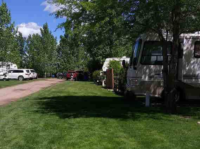United Way of Lethbridge celebrates an 80 year history of helping
By Dale Woodard - Lethbridge Herald on December 3, 2021.
Noted historian, author, teacher, advocate Belinda Crowson held a virtual fireside chat Saturday, celebrating 80 Years of United Way in Lethbridge.
At the centre of Saturday’s discussion was helping those in need.
“One thing we know about Lethbridge and any community is there has always been a need and there has always been people who responded to the need,” said Crowson.
The United Way got its start in Lethbridge as a Community Chest back in 1941.
To address the funding needs of the community after the outbreak of the Second World War, the City of Lethbridge, along with local service clubs, labour, and organizations needing to fundraise came together.
The solution was to run a strong, unified fundraising campaign together, and then share the proceeds. The first fundraising campaign in 1941, headed by lawyer R.R. Davidson, raised just over $56,000.
“The community chest was formed because they understood it was easier to have people work together,” said Crowson.
The original headquarters of the Community Chest was the Council Chambers at City Hall and the first campaign of the Community Chest was in March of 1941.
Throughout Saturday’s online session, Crowson touched on individuals who gave back to the community in varying ways.
Included was a video from the 1950s about the Red Feather Services, which was a symbol for community chests starting as early as the Great Depression.
“They used to have red feather thermometers and have them out where they used the feather as a way of marking how many donations came in. There was a Red Feather Foundation in Montreal and it was a very popular symbol,” said Crowson, adding she doesn’t recall seeing a Red Feather thermometer in Lethbridge.
“But we do have pictures of a thermometer that used to be outside of City Hall where they would mark how much money was being raised each year. I don’t know how they made that stand outside City Hall in the wind. It was huge. It was as tall as the old 1948 City Hall. They used to have the thermometer outside, so there were always ways of marking it in the community.”
Crowson spoke of the first letter of welfare relief from 1891 from Thomas Curry, the chair of the committee of health and relief.
“He wrote this letter on Nov. 2, 1891. So here we are 130 years later, almost to the date when this letter was written. And it was written to the mayor and council of Lethbridge,” said Crowson, of Curry’s letter about a desolate and destitute home of a mother of five children.
“The first time there was a need in Lethbridge they used public funds for the need,” said Crowson. “Even before there were any private organizations working on it, the town of Lethbridge stepped up and I would like to set that as a precedent.”
Throughout her talk Crowson spoke of the Nursing Mission of Lethbridge, which was the relief society to supply clothes and food for needy families in 1910 and was eventually headed up by superintendent Anna Tilley, who was at the founding meeting of the Canadian Chest of the United Way representing the Nursing Mission.
Also discussed was the Travellers Aid Society, which operated in Lethbridge from 1910 to the 1950s whose purpose was to provide assistance to travelers arriving in Lethbridge as well as Christian Gibson, who worked with the Red Cross during the Great Depression and helped victims and families affected by the Coalhurst mine explosion in 1935 that killed 16 men.
In 1940, the Imperial Order of the Daughters of the Empire was formed to support soldiers and their dependents, raising money to send food to the men and create a program to maintain soldiers’ and to provide social services for returning soldiers.
“If you were to go to Mountainview Cemetery and find the earlier field of honour in Lethbridge, the fence and gate were put up by the IODE,” said Crowson.
In 2021, there are 13 United Way partners operating programs and services for poverty reduction, individual and community wellness, and positive child and youth development. Among those are programs such as the Baby Bundle program at Interfaith Food Bank, “supports for people with disabilities at Inclusion Lethbridge and Inclusion Foothills, and mentoring programs for children at Big Brothers Big Sisters of Lethbridge & District.
“One of the things we know is our technology has obviously changed, but human nature and human need have not,” said Crowson.
Follow @DWoodardHerald on Twitter
3-2




